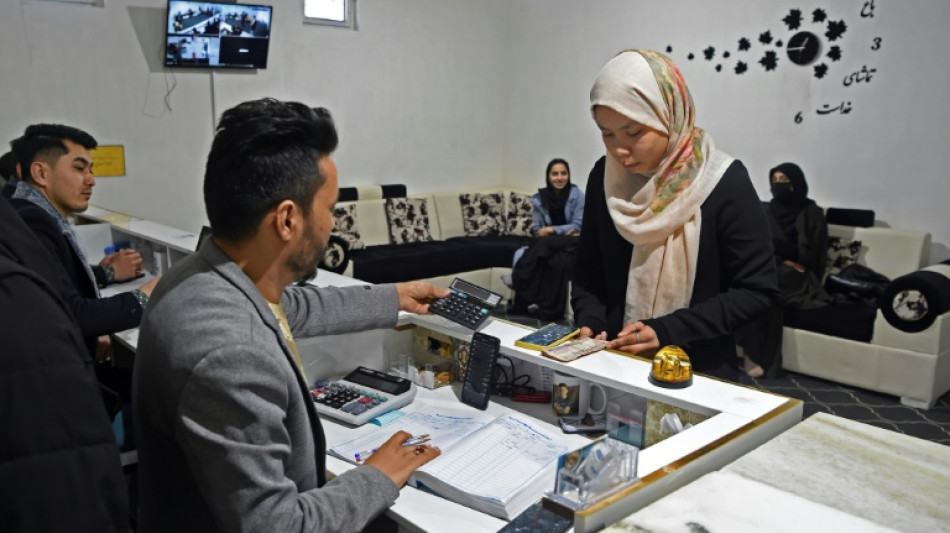
-
 Spurs reach Europa League final to keep Postecoglou's trophy boast alive
Spurs reach Europa League final to keep Postecoglou's trophy boast alive
-
US unveils ambitious air traffic control upgrade

-
 US climate agency stops tracking costly natural disasters
US climate agency stops tracking costly natural disasters
-
Germany slams Russian 'lies', France warns of war 'spectre' in WWII commemorations

-
 'A blessing': US Catholics celebrate first American pope
'A blessing': US Catholics celebrate first American pope
-
Trump hails 'breakthrough' US-UK trade deal
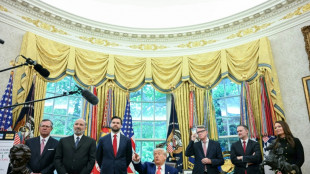
-
 Cardinals elect first American pope as Robert Francis Prevost becomes Leo XIV
Cardinals elect first American pope as Robert Francis Prevost becomes Leo XIV
-
NHL Ducks name Quenneville as coach after probe into sex assault scandal

-
 'Great honor': Leaders welcome Leo, first US pope
'Great honor': Leaders welcome Leo, first US pope
-
What is in the new US-UK trade deal?
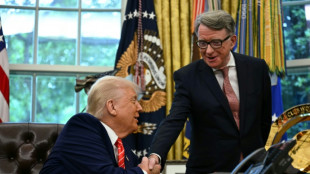
-
 MLB Pirates fire Shelton as manager after 12-16 start
MLB Pirates fire Shelton as manager after 12-16 start
-
Alcaraz '100 percent ready' for return to action in Rome

-
 Prevost becomes first US pope as Leo XIV
Prevost becomes first US pope as Leo XIV
-
Andy Farrell holds out hope for son Owen after Lions omission

-
 Roglic leads deep field of contenders at tricky Giro d'Italia
Roglic leads deep field of contenders at tricky Giro d'Italia
-
White smoke signals Catholic Church has new pope

-
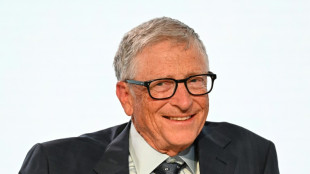 Bill Gates speeds up giving away fortune, blasts Musk
Bill Gates speeds up giving away fortune, blasts Musk
-
LA Coliseum, SoFi Stadium to share 2028 Olympic opening ceremony

-
 Trump unveils 'breakthrough' US-UK trade deal
Trump unveils 'breakthrough' US-UK trade deal
-
Andy Farrell holds out hope for Owen Farrell after Lions omission

-
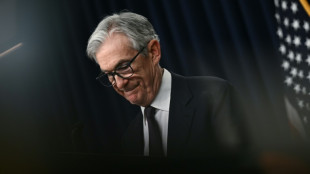 Trump calls US Fed chair 'fool' after pause in rate cuts
Trump calls US Fed chair 'fool' after pause in rate cuts
-
Stocks rise as US-UK unveil trade deal
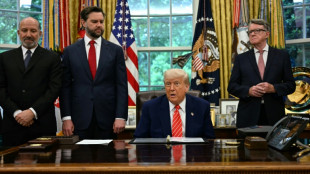
-
 UN says Israel school closures in east Jerusalem 'assault on children'
UN says Israel school closures in east Jerusalem 'assault on children'
-
Itoje grateful for 'tremendous honour' of leading Lions in Australia

-
 Cardinals to vote anew for pope after second black smoke
Cardinals to vote anew for pope after second black smoke
-
Arsenal fall short again as striker woes haunt Arteta

-
 Inter turn attentions to fading Serie A title defence after Barca triumph
Inter turn attentions to fading Serie A title defence after Barca triumph
-
Elk could return to UK after 3,000 years as plan wins funding

-
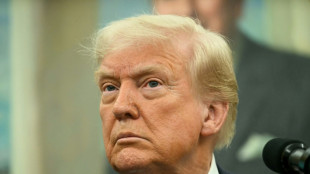 Trump announces 'full and comprehensive' trade deal with UK
Trump announces 'full and comprehensive' trade deal with UK
-
Putin and Xi rail against West as Ukraine reports truce violations
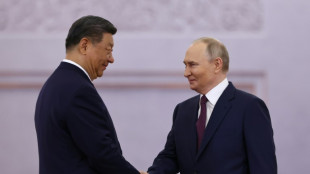
-
 England's Itoje to captain British and Irish Lions rugby team in Australia
England's Itoje to captain British and Irish Lions rugby team in Australia
-
Gates Foundation to spend $200 bn through 2045 when it will shut down
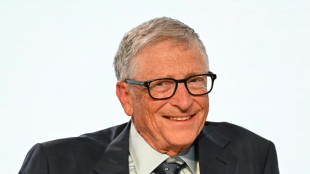
-
 Swiatek makes fast start at Italian Open
Swiatek makes fast start at Italian Open
-
Israel's aid blockade to Gaza 'unacceptable': Red Cross

-
 EU threatens to target US cars, planes if Trump tariff talks fail
EU threatens to target US cars, planes if Trump tariff talks fail
-
Amnesty says UAE supplying Sudan paramilitaries with Chinese weapons

-
 Bank of England cuts interest rate as US tariffs hit economy
Bank of England cuts interest rate as US tariffs hit economy
-
Germany slams Russian 'lies' on Ukraine in WWII commemoration
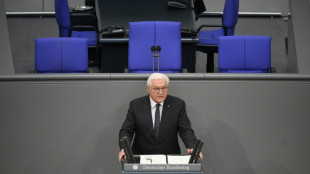
-
 Pakistan and India accuse each other of waves of drone attacks
Pakistan and India accuse each other of waves of drone attacks
-
Thrilling PSG home in on elusive Champions League trophy

-
 Wolf protection downgrade gets green light in EU
Wolf protection downgrade gets green light in EU
-
Fijian Olympic medallist Raisuqe killed after car hit by train

-
 EU parliament backs emissions reprieve for carmakers
EU parliament backs emissions reprieve for carmakers
-
Trump announces trade agreement with UK
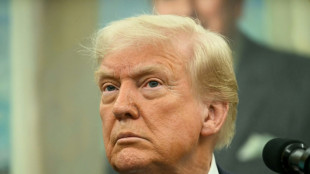
-
 Global temperatures stuck at near-record highs in April: EU monitor
Global temperatures stuck at near-record highs in April: EU monitor
-
Stocks rise as Trump signals US-UK 'trade deal'

-
 Second black smoke, cardinals to vote again for new pope
Second black smoke, cardinals to vote again for new pope
-
Screams and shattered glass under Pakistan bombardment

-
 Drone strikes spark civilian exodus from army-controlled Sudan aid hub
Drone strikes spark civilian exodus from army-controlled Sudan aid hub
-
First responders in Gaza run out of supplies


Crypto provides fix for some in crisis-hit Afghanistan
In the middle of a bazaar in western Afghanistan, Arezo Akrimi takes out her smartphone and, after a few taps of the screen, changes some cryptocurrency for a bundle of hard cash.
Arezo, 19, is one of a hundred students in Herat receiving around $200 a month in cryptocurrency since September thanks to an American NGO Code To Inspire.
This sum, which she converts at a bureau de change into Afghanis, is crucial for the rent and to help feed her family of six.
Since the Taliban returned in August, Afghanistan's economy has virtually collapsed and the country is in the grip of a crisis caused by the seizure of billions of dollars of assets held abroad.
But digital currencies and their decentralised architecture, impervious to international sanctions, are allowing a handful of young Afghans to avoid the worst of the crisis.
"It was very surprising for me to learn that this could be used in Afghanistan," Arezo told AFP. "It was really helpful."
Code To Inspire was founded to teach computer programming to women in Herat, but its hi-tech approach is now also helping students get funds in the economically deprived nation.
Bank transfers to Afghanistan are almost impossible currently, to prevent funds from falling into the hands of Islamist fundamentalists.
But even those with money in a bank struggle to get it out -- individuals are limited to withdrawing the equivalent of $200 a week, and businesses $2,000.
Customers have to queue for hours even for those transactions.
Cryptocurrency transfers have allowed the NGO to circumvent these obstacles while ensuring that each donation gets to those who need it most, founder Fereshteh Forough told AFP.
"Crypto is an incredible way to overcome all kinds of political and economic sanctions, but also a tool that can change the lives of people living in an authoritarian regime," says the American, whose parents fled Afghanistan in the 1980s.
To guarantee the financial security of its students, the NGO avoids paying them in bitcoins, the best-known cryptocurrency but whose price regularly swings wildly.
Instead, it favours the BUSD, a so-called "stablecoin" whose price is backed by the dollar.
"One BUSD is one dollar," says Forough.
- Crypto coverts -
Beyond this humanitarian initiative, cryptocurrencies are gaining other followers in Herat, according to forex dealer Hamidullah Temori.
He has seen an influx of new customers over the past six months, many of whom regularly come to convert cryptoassets sent by relatives from abroad into Afghanis.
"Since the Taliban came to power (cryptocurrency) transfers to and from abroad have increased by 80 percent," he told AFP.
Transfers are instantaneous and commissions are much lower than transactions made through Western Union or hawala, the over-the-counter system traditionally favoured by Afghans.
In Kabul, Noor Ahmad Haidar has become a crypto convert by force of circumstance.
The young man, who started exporting saffron to the United States, Britain, Australia and Canada in early 2021, now has 90 percent of his orders paid for in bitcoins.
"I avoid going through the chaotic process of bank transfers," he says.
"Since August, it has really become the only option available, and the most convenient for me."
Its growing popularity in Afghanistan was noted by Chainalysis in its 2021 Global Cryptocurrency Adoption Index, which ranked the country 20th out of 154 countries for "grassroots take-up".
"I don't think it's just in response to the Taliban taking over," says Kim Grauer, the firm's director of research.
"It's also because we're at a time when there are more solutions that allow you to trade cryptocurrencies on your phone and more people understand what it is."
Still, while the momentum is growing the volume of trading remains very low, and will remain so due to the lack of internet access and high levels of illiteracy in Afghanistan, she says.
- 'Very good protection' -
But for those who can venture into this world, cryptocurrencies could be a lifeline.
Besides his studies, Ruholamin Haqshanas writes from Herat for India-based media specialising in new technologies.
Since the advent of the Taliban his salary, paid entirely in stablecoins, has allowed him to absorb the galloping inflation and the free fall of the Afghani.
"The stablecoins offer a very good protection against the loss of value of the currency," says the 22-year-old student, who now earns more than his doctor father.
The young man is also trying to speculate on some of the more volatile crypto-currencies, thanks to the advice of a WhatsApp group with 13,000 members in Herat.
Fellow student Parisa Rahamati earned $600 in February hedging on the price of decentralised currencies such as Ethereum and Avax -- a windfall she shared with her widowed and unemployed mother.
"You have to be willing to take risks," confides the 22-year-old.
"Crypto is 50/50... you can double your bet or go to zero."
J.Williams--AMWN